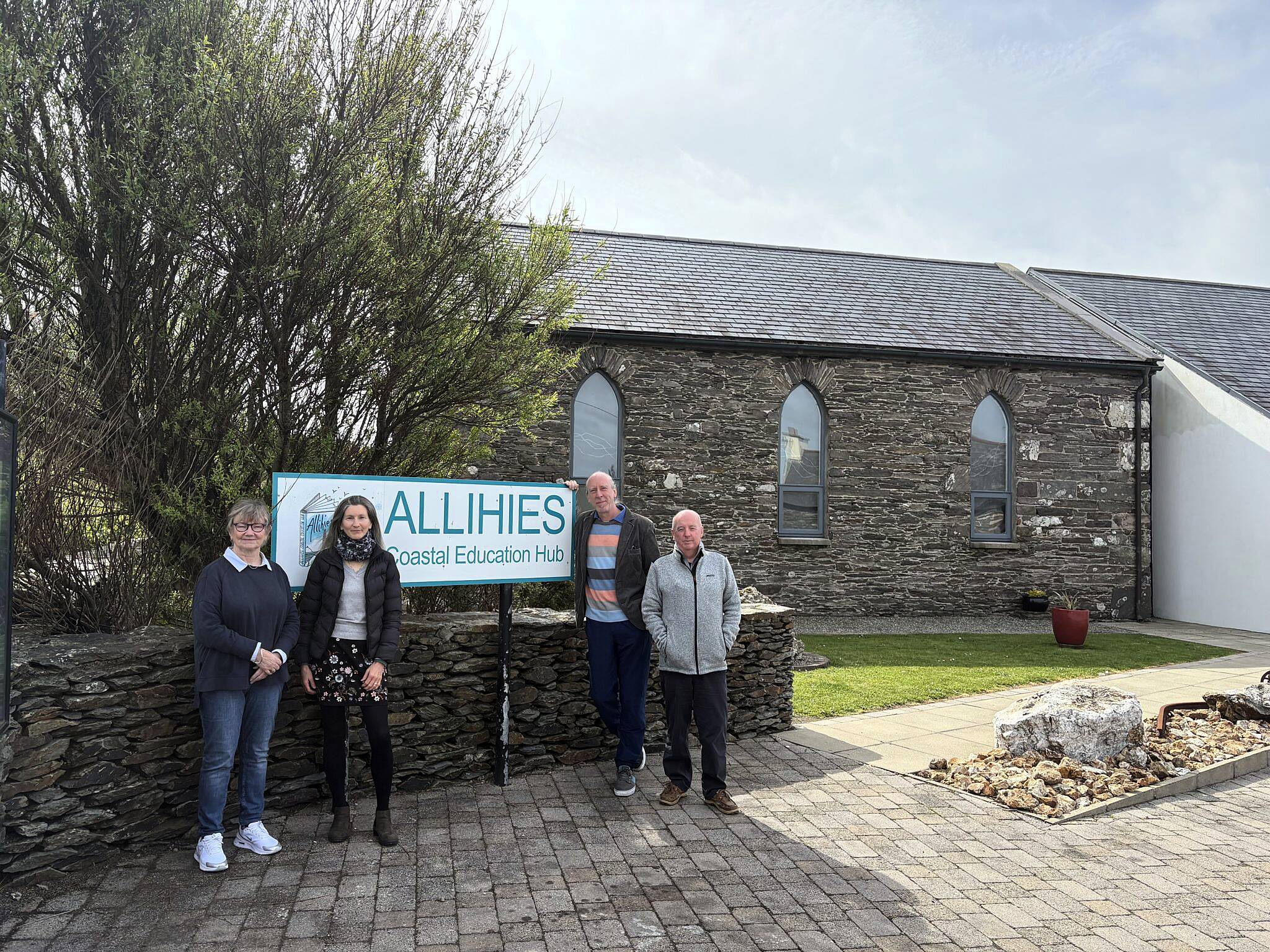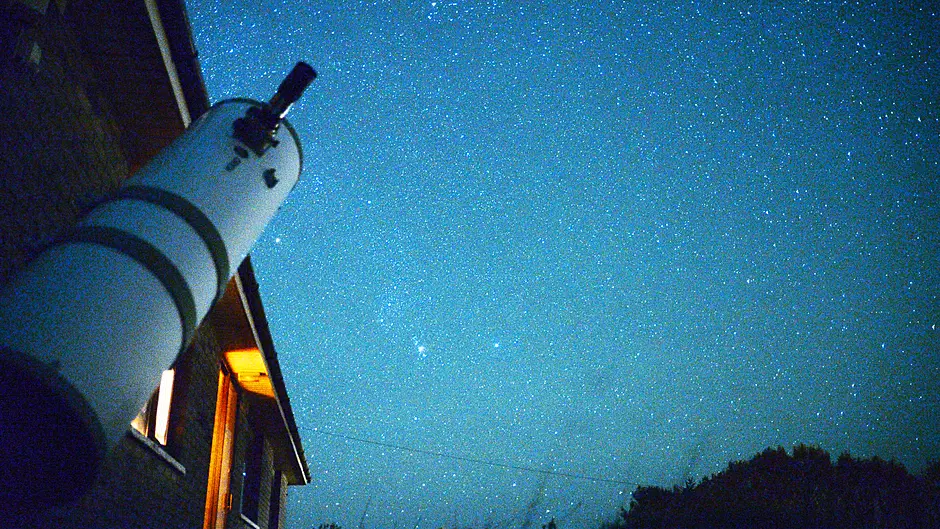Plans are underway for the Beara Peninsula to become Ireland’s third official Dark Sky area, following in the footsteps of the Kerry International Dark Sky Reserve and Mayo Dark Sky Park.
BY HELEN RIDDELL
The Allihies Copper Mine Museum is spearheading the application through its Coastal Education Hub, while the project is being led by Tadhg O’Sullivan, chair of the museum along with astronomer Denis Walsh.
The Coastal Education Hub was set up as a joint partnership between the Allihies Museum and Bord Iascaigh Mhara under its Fisheries Local Area Development Scheme, in a bid to nurture local enterprise, education and the environment.
Tadhg believes that securing Dark Sky status for the area would not only protect the night skies from light pollution, but would be a welcome boost for off-season tourism.
‘The Dark Sky project is something we’ve been thinking of for some time, but with the setting up of the Coastal Education Hub, it’s the ideal time to push forward with this. I was amazed recently when someone said they’d never seen the stars, as they were living in a city, as we take it from granted here. Dursey Island is renowned worldwide as being A1 for its pristine night skies; at the far end of Dursey, there is absolutely no light pollution.’
Becoming a Dark Sky area is a long process, says Tadhg, but the group are making good progress. ‘Since we made the decision to proceed, we’re taking incremental steps. Things are moving forward all the time, and we’re very fortunate to have the astronomer Denis Walsh on the team.’
Denis has previously worked at the Blackrock Castle observatory, but since relocating to Allihies has been proactive in getting the local community involved in astronomy.
‘Since I moved here, I’ve started holding astronomy get-togethers. I really wanted to raise awareness and encourage people to appreciate the night sky.’
Denis says ideally they would hope to have the entire area west of Kealkill designated as a Dark Sky Reserve, taking in the whole Beara Peninsula, with areas at the far western end including Allihies and Dursey Island as the core area.
‘The way Kerry have set up their Dark Sky Reserve, there are buffer zones, and then around Ballinskelligs is your core area. We would hope to do something similar, that the further west you head, the less light pollution there is and the darker the skies.’
 Members of the Dark Sky project team Barbara Kenneally, Elaine O’Driscoll-Adam, Denis Walsh, and Kevin Kenneally.
Members of the Dark Sky project team Barbara Kenneally, Elaine O’Driscoll-Adam, Denis Walsh, and Kevin Kenneally.As well as encouraging more people to visit Allihies and the wider Beara area, Denis noted that minimising light pollution will also have a positive effect on biodiversity.
‘Migratory birds, bats and insects are very much affected by light pollution. Light pollution may not seem as pressing an issue as air or water pollution, but it is a problem that has been growing globally ever since the introduction of the first public lighting systems in the 1880s. However, public lighting policy is changing and there’s now a policy of installing warmer toned lighting which is better environmentally, as a warmer red light doesn’t scatter light as much as blue light does.’
Both Denis and Tadhg are working through the application process in a methodical way.
‘The International Dark Sky organisation, who are based in Tucson, Arizona, have a set of guidelines and some criteria you need to fulfil before even making a formal application to them, so we’re working through that. At the moment, our priority is to get the community involved. We’ve reached out to local bodies and officials, tourism businesses, community groups, bird watchers, local councillors and the local area engineer and also a representative of Cork County Council who deals with public lighting.’
Tadhg and Denis are adamant that there is no end to the project, even if the application is successful and Dark Sky status is granted. They will continue to build on the work, and working to combat light pollution in the area will be an ongoing project.
Tadhg says that, ultimately, being awarded Dark Sky status would be a huge boost for tourism to the area, particularly for the off-season months. ‘It will definitely support local businesses by helping to prolong the season. There is a cohort of tourists who crave the night sky for photographic and visual pursuits.’
And it’s not just tourists who are mesmerised, says Denis: ‘At our astronomy gatherings, I notice people’s reactions. They’re absolutely awestruck by the night skies here’.
‘Beara really does have everything to offer visitors.’










